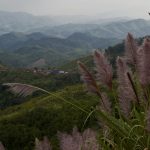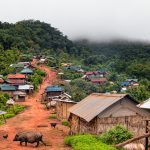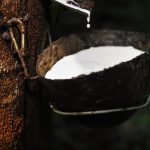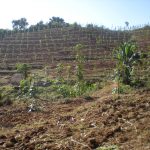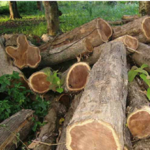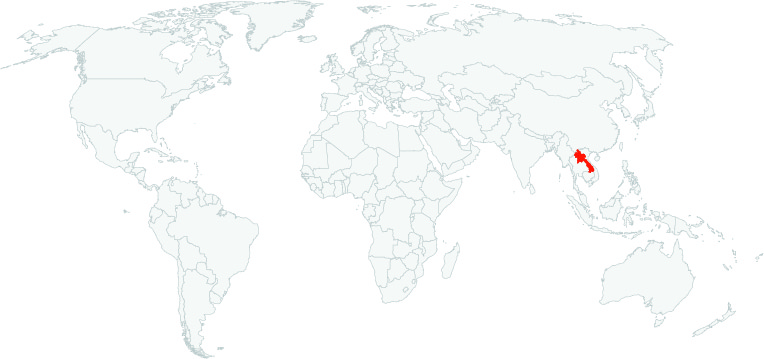
- The Government of Lao People’s Democratic Republic (Lao PDR) has developed new legislation, policies, and plans to promote economic development through socially and environmentally sustainable forest management but illegal logging remains a challenge.
- There are risks associated with the land allocation process in Lao PDR and corruption persists, though this risk has been diminished by recent legal reforms around granting of concessions and management of conversion timber.
- Lao PDR has introduced numerous bans on the exports of unprocessed logs and sawn timber which has dramatically reduced trade with Vietnam and China.
- There remains a risk of unsustainable and illegal trade in the Convention on International Trade in Endangered Species of Wild Fauna and Flora (CITES)-listed species, but a recent (September 2021) Order has prohibited imports and exports of goods protected via international conventions, including CITES.
- Enforcement is improving but is still weak and lacks sufficient resourcing.
Read more by downloading the Lao People’s Democratic Republic Timber Legality Risk Dashboard here.
New Forests’ Tropical Asia Forest Fund 2 (TAFF2) together with Mirova’s sustainable land use strategy have invested in Burapha, a Lao-Swedish plantation and wood products manufacturing company.
With 6000 hectares, the land comprises conservation areas, a plywood mill, and a voluntary carbon project focused on plantation afforestation, reforestation, and revegetation (ARR) issuing carbon credits compliant with Verified Carbon Standards since 2023.
Also reported here: New Forests acquires Laos timber company :: Environmental Finance and New Forests fund buys stake in timber plantation firm in Laos | Impact Investor
The global agarwood trade heavily depends on wild-harvested endangered tree species, despite international regulations for protection, with significant volumes going undocumented in official trade records, a new study reveals.
About 70% of the trade depend on Aquilaria filaria and Aquilaria malaccensis, both threatened species, sourced from the wild, raising major sustainability concerns. Meanwhile, there are some tree species that are not even covered by CITES, the global wildlife trade convention.
Due to discrepancies between CITES and customs data, along with weak enforcement and outdated regulations, researchers suggest the illegal trade is far larger than reported.
Researchers urge stronger monitoring, updated data, expanded species protection, and a shift to cultivated sources. They also call on consumers and wealthy importers to support conservation and governments to promote sustainable practices.
Japanese paper and packaging giant Oji Holdings and New Forests, a global investment manager focused on nature-based assets, announced on March 26 a US$300 million (S$401 million) fund to buy forestry estates, with the majority of the investment set to be in South-east Asia.
The fund is a reflection of increasing investor interest in forestry not only for stable returns from timber revenues but also for the climate, and increasingly biodiversity, benefits. Large timber concessions that have tracts of natural forest can also earn revenue from carbon credits by keeping the forests standing.
New Forests had nearly 912,000ha of certified forests under management globally in the 2024 financial year (July-June), with an additional 200,196ha of conservation areas, according to its latest sustainability report.
The country’s improved railway connectivity facilitates fruit exports to China but has also sparked a boom in foreign-owned banana and durian farms, leading to deforestation.
This story is the first of two investigative reports from Mekong Eye exploring the impact of large-scale agriculture on deforestation and soil quality in Laos.
National Assembly Resolution 57 in Laos has been issued, marking a step forward in securing land use rights for communities living in forest areas, allowing them to obtain formal land titles for permanent agricultural and residential land. While this is a major milestone, challenges in implementation remain, with a need for fair, transparent processes and complementary tenure instruments to ensure the resolution’s success in supporting both community rights and forest conservation.
The Monetary Authority of Singapore (MAS) has warned the city-state is vulnerable to criminals laundering the proceeds of environmental crime and is urging local banks to conduct greater scrutiny of trade transactions. Last week, MAS published the findings of a government-wide review into Singapore’s financial sector and its potential exposure to crimes such as wildlife trade, illegal logging and the illicit shipping of hazardous waste.
Later this year, Singapore is preparing to expand the scope of its existing Corruption, Drug Trafficking and Other Serious Crimes (Confiscation of Benefits) Act, which targets environmental crime laundering. The expansion would allow Singapore’s authorities to investigate offences that first take place overseas but have “no domestic equivalent”, such as illegal logging or waste trafficking.
This media report highlights human trafficking into Laos. The Indian Embassy in Laos specifically mentions links to mining and timber factories.
The overall rate of primary forest loss across the tropics remained stubbornly high in 2023, putting the world well off track from its net-zero deforestation target by 2030, according to a new report from the World Resources Institute.
The few bright spots were Brazil and Colombia, where changes in political leadership helped drive down deforestation rates in the Amazon.
Elsewhere, however, several countries hit record-high rates of forest loss, including the Democratic Republic of Congo, Bolivia and Laos, driven largely by agriculture, mining and fires.
Southeast Asia has never been an easy place for activists, but a worrying trend emerged over the course of 2023 that saw environmental and Indigenous activists increasingly placed in the crosshairs of authoritarian governments as a result of their activism.
Mongabay presents a short summary of status of illegal logging and forest governance in SE Asia.
European Union rules aimed at stopping deforestation threaten widespread disruption for Southeast Asia’s rubber sector, from Cambodia’s 30,000 small farmers to major exporters in Thailand and Malaysia.
The concern for Southeast Asia, critics say, is that these requirements will disproportionately hurt small farmers while failing to adequately address rubber’s role in deforestation.
The deforestation caused by the rubber farming in Thailand and the world has been significantly underestimated, according to new findings from two scientific studies, with Southeast Asian rubber production potentially contributing up to three times more forest depletion than previously thought.
With over 4 million hectares of forest lost for rubber production since 1993, an area the size of Switzerland, “the effects of rubber on biodiversity and ecosystem services in Southeast Asia could be extensive,” according to a paper published on Wednesday in the journal Nature.
In Southeast Asia, mature rubber plantations covered 14.2 million hectares. Indonesia, Thailand, and Vietnam accounted for more than 70% of these plantations.
China, Malaysia, Myanmar, Cambodia, and Laos were also important rubber-producing countries. Rubber plantations that were closed down before 2021 were excluded from the analysis, despite the fact that they may have contributed to deforestation.
A new report indicates that rubber-related forest loss has been substantially underestimated in policy, by the public and in recent reports. Direct remotely sensed observations show that deforestation for rubber is at least twofold to threefold higher than suggested by figures now widely used for setting policy
While this article is a basic summary of recent reports on the trade of Myanmar teak and sanctions, it also lists a few countries where some FSC-certified or “ethical teak” can be found (Indonesia, Vietnam, Laos, Costa Rica, Brazil, Columbia)
Thailand, Laos and Myanmar are at the frontlines of illicit trade in Asia dominated by transnational organized crime syndicates.
The trafficking in illegal narcotics, precursor chemicals, timber and wildlife, people and illicit goods across Southeast Asia is being tackled thanks to the support of the specialized UN agency focusing on drugs and crime.
Illegal logging, concessions to private developers and agricultural encroachment on forest lands are jeopardizing Laos’s goal of achieving 70% forest cover density by 2035.
That’s according to a recent survey by Laos’s Ministry of Agriculture and Forestry, which pointed to an increase in illegal logging in the country.
The Lao government has lost $767 million to corruption in the past six years, media reports referred to the country’s State Inspection Authority. The leading sources of the widespread graft are government development and investment projects such as road and bridge construction, as well as illegal logging and wood trade, the authority said in a report published on April 11.
Police in Vientiane Capital have arrested six people believed to have undertaken illegal logging in a forest in Sangthong District. Police officers in cooperation with military personnel undertaking a routine patrol of the area found that timber businesses had illegally felled trees in the forest near Phou Phanang, according to Vientiane Capital Security News. The illegally sourced timber has been confiscated and an investigation is underway.
Authorities in Vientiane Province’s Kasi District have confiscated and destroyed illegal timber. According to a report by Lao Phattana Daily, some 170 pieces of hardwood were seized in Bouakxang Mountain at Nongsan Village of Kasi District. Authorities have permitted 94 blocks of illegal hardwood to be auctioned off to generate revenue for the government. The remaining 76 blocks of illegal timber were burned to prevent as a deterrent to further illegal logging.
Click here to access the Global Illegal Logging and Associated Trade (ILAT) Risk assessment tool and to download the Forest Trends User Guide describing the functionality of the ILAT Risk Data Tool.
Click here to access the Cattle Data Tool.




